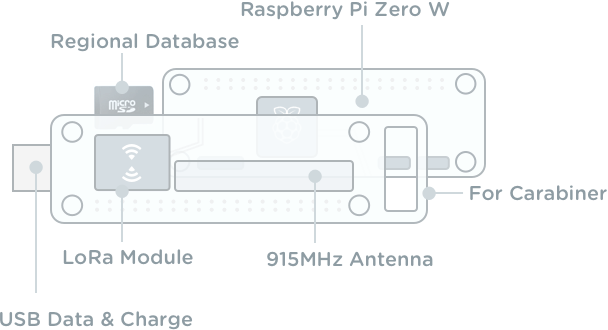A Brooklyn startup won first place in the first stage of the WINS Challenge (Wireless Innovation for a Networked Society) organized by the Mozilla Foundation and the National Science Foundation.
The winner is a product that aims to offer users in crisis situations like natural disasters a way to access the internet if the WiFi goes down and the power goes out. It’s called Project Lantern, and it’s made by Brooklyn firm Paper & Equator.
Combining low-cost hardware to keep the cost down, the lanterns use Raspberry Pis as processors and LoRa radio wavelengths for connectivity. Users can access maps, information on fuel and water supplies, and send messages to their families. The whole shebang costs about $50 to make.
The WINS Challenge is looking for the best products to advance progress in two areas: Off-the-Grid Internet and Smart Community Networks.
No Brooklyn startups won in the Smart Community Networks category but three in addition to Project Lantern placed in the Off-the-Grid Internet category, which were: goTenna’s imeshyou map, Dhruv Mehrota’s Othernet and NYC Mesh, all of which won honorable mentions, $10,000 and a entrance to the next stage.
The next stage is for working prototypes, with the top four projects winning prize money, including $400,000 for the first place winner. The finalists will show their products at a demo day this summer in Mountain View.
“Firefox is a big part of Mozilla’s work, but not the whole picture,” explained the Mozilla Foundation’s Kevin Zawacki in a text message. “We also run advocacy campaigns and provide grants and fellowships that support an open, equal internet. That’s why you’ll see us sounding off on net neutrality — or in this case, providing grants to community technologists.”
Before you go...
Please consider supporting Technical.ly to keep our independent journalism strong. Unlike most business-focused media outlets, we don’t have a paywall. Instead, we count on your personal and organizational support.
Join our growing Slack community
Join 5,000 tech professionals and entrepreneurs in our community Slack today!

